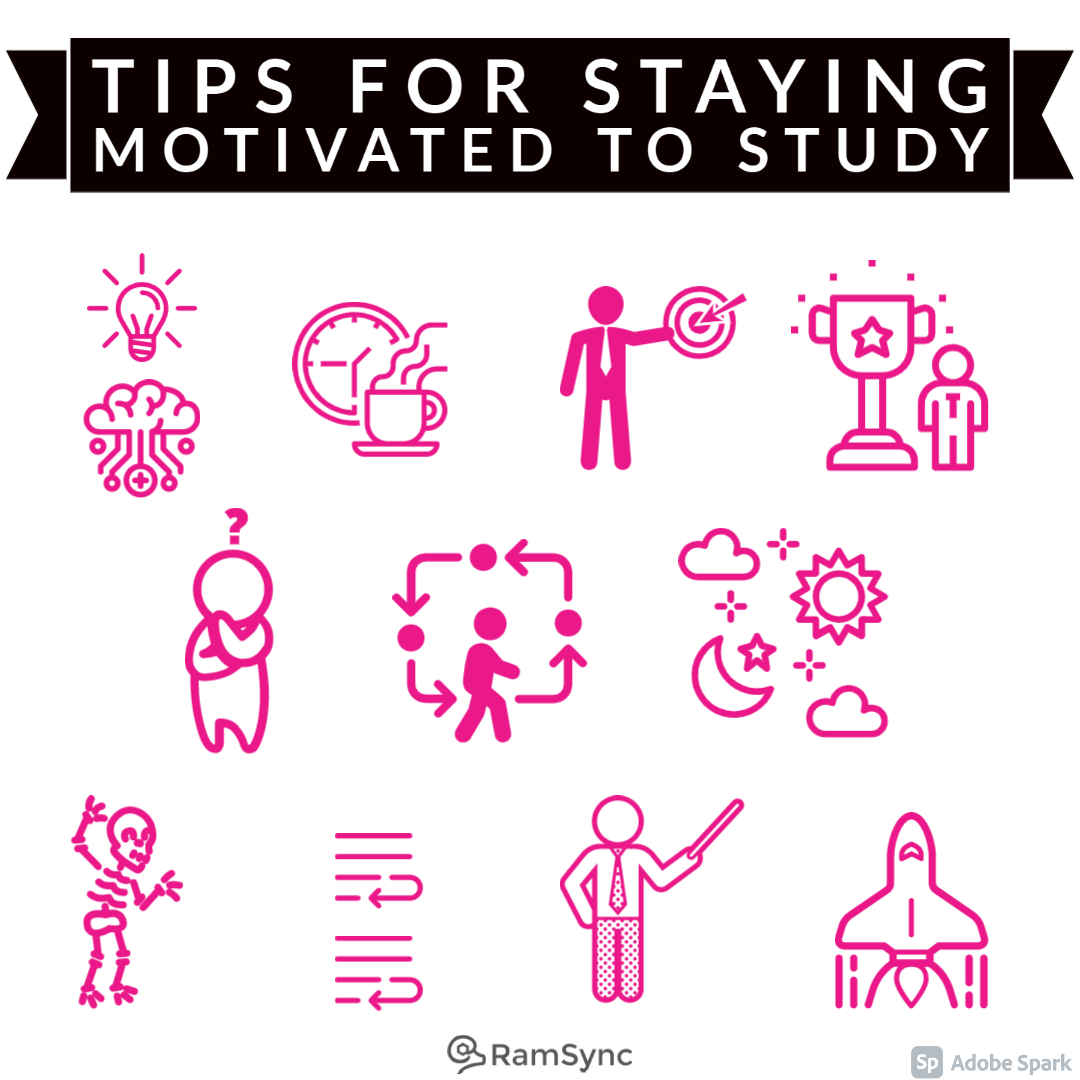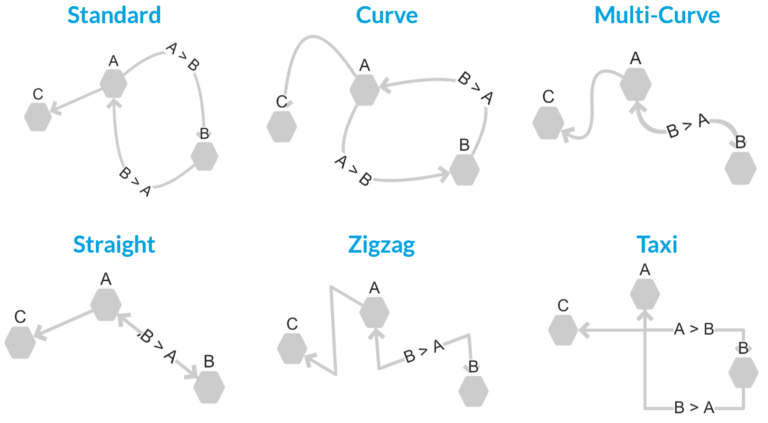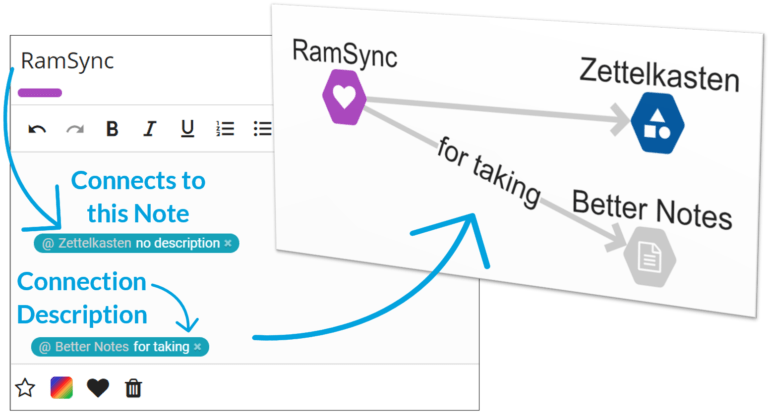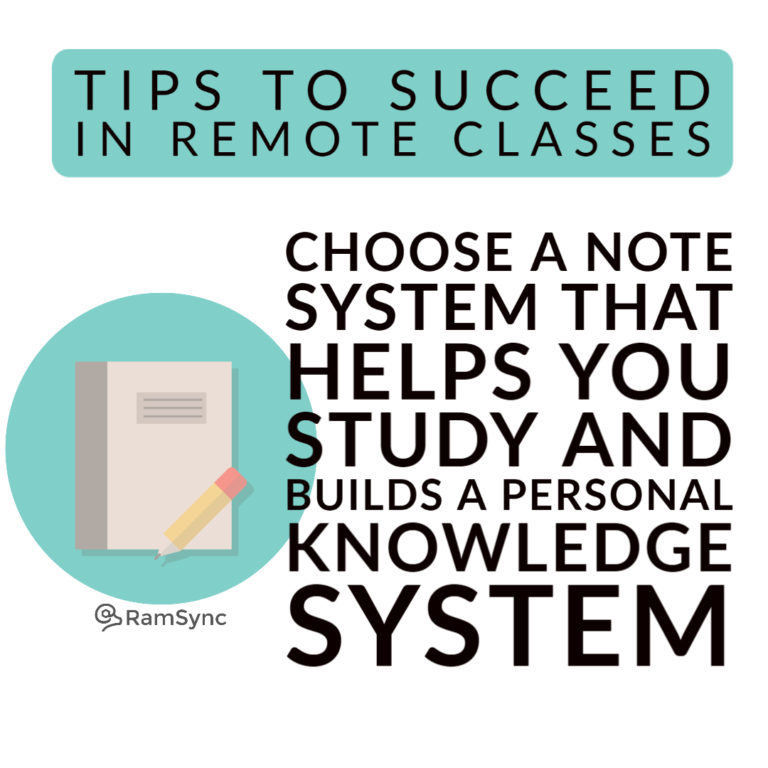Studying takes time, effort, and motivation. However, with the following 11 tips, you can stay motivated and study more effectively. Study smarter, so you can study harder.
Ready for some study motivation? You’ve got this!
1: Keep it interesting
Connect ideas to what you already know. It is much harder, and much less interesting to try memorization. It is easier to studying interesting topics, so trick the brain into thinking it is interesting. How? Make it relevant. Turn it into a puzzle. Connect information to what you already know. Learn to take better notes so you need less time for review.


2: Schedule Breaks
Long study sessions are draining, and mental fatigue is real. By scheduling breaks ahead of time, the brain will more easily welcome study sessions.
The Pomodoro technique is a perfect tool to schedule deep focus and study breaks. Lowering mental fatigue is critical, as it will help you study more efficiently and leave time for life outside the books!
3: Plan out Reasonable Goals
Accomplishing your goals is rewarding, yet consistently missing goals is disheartening.
Learn to set reasonable, specific, bite-sized goals. Bite-sized is key for studying; for example these goals should be achievable within a couple Pomodoro cycles, or a day at most. Checking off accomplished tasks has been shown to be a strong neurological motivator, so hack that part of the brain!
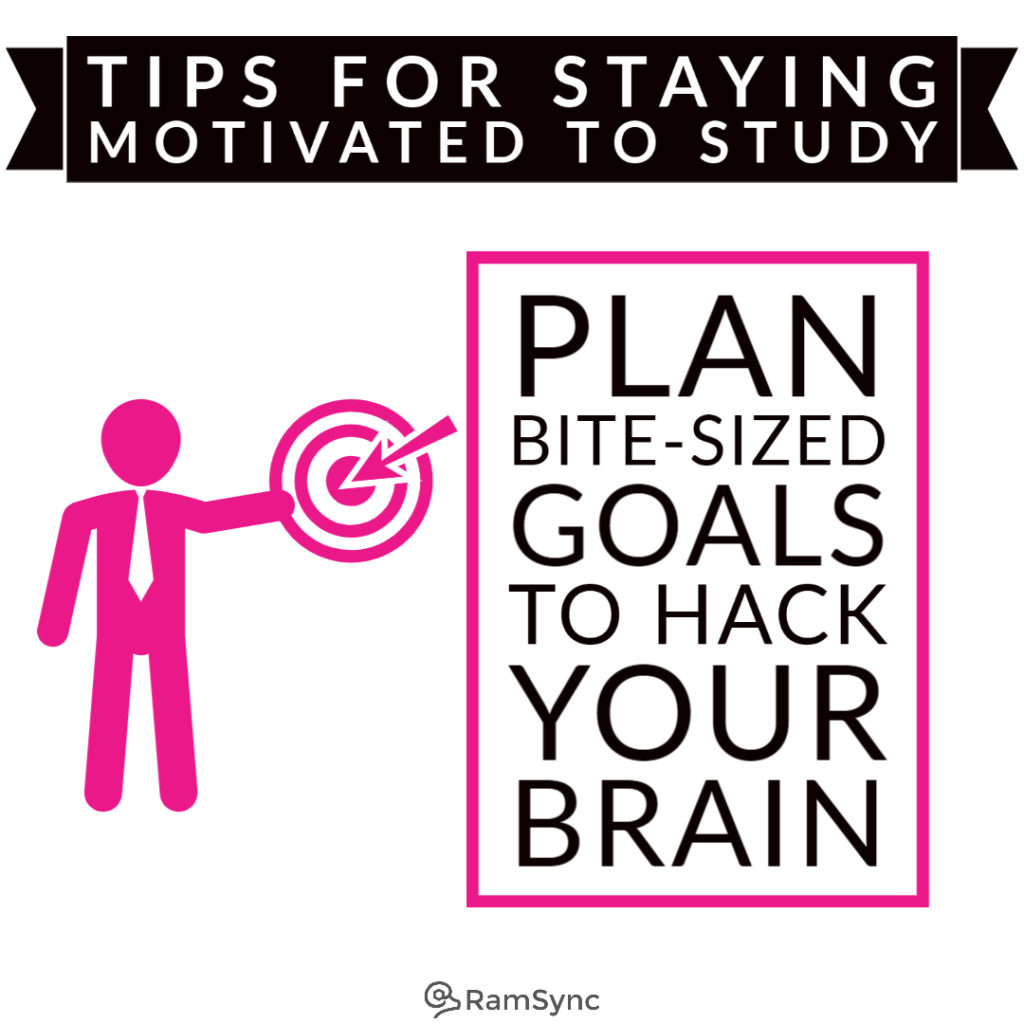

4: Add in Some Rewards
Rewards can be anything. A set of stickers, new highlighters, a treat, or even some video game play. It’s okay to have a little fun and mix it up!
Get creative! We have taken many rewards in the form of walks, feeding the ducks, and plyaing with puppies. The reward doesn’t have to be the same every time. See what works for you!
5: Remember the Why
Sometimes in school it is easy to focus on the metrics The grades, the tests, and all the work left to do.
Try to remember the bigger picture, the Why of learning. Remember the dreams you have for the future and reflect back on all you have accomplished so far. See your vision in crystal clear colors, smell it, taste it, and it will give you purpose in the moment.

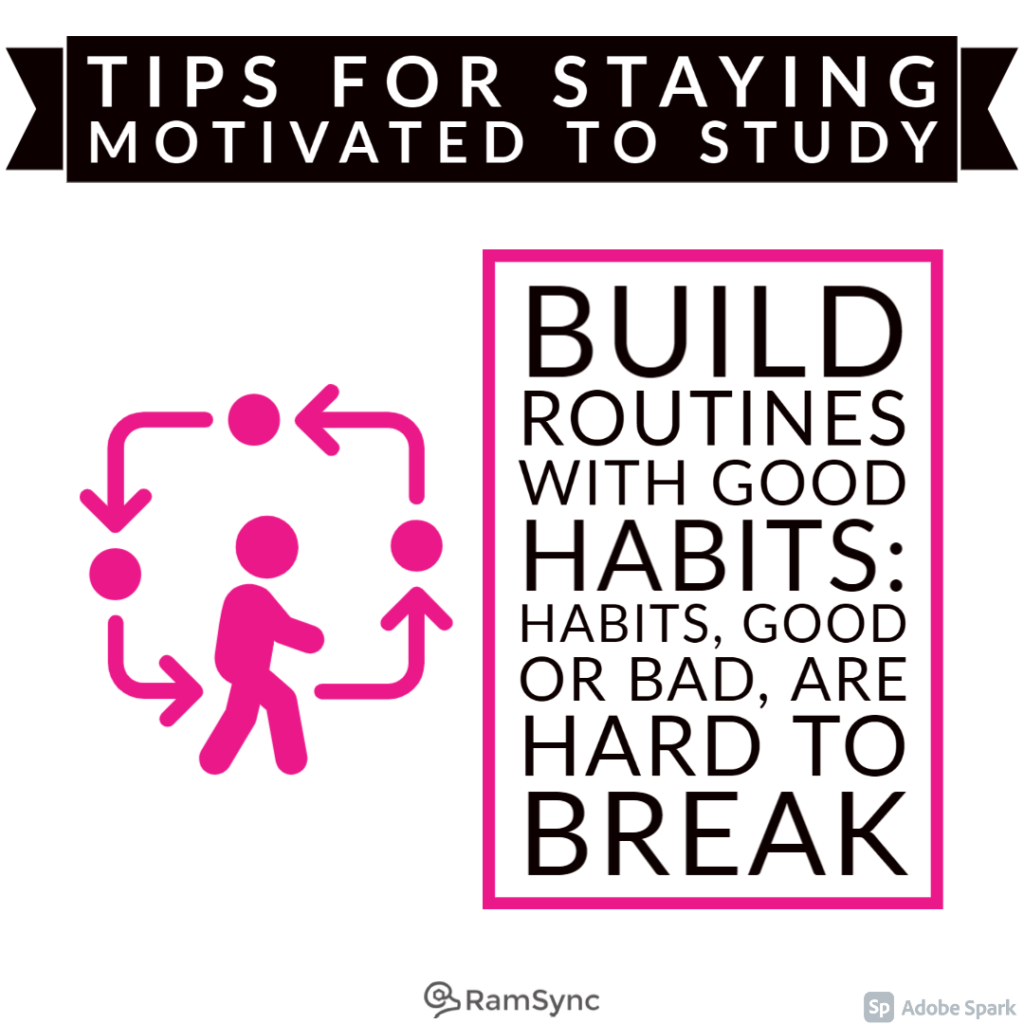
6: Build Routines
Humans are creatures of pattern. We build mental scripts, find comfortable cadences, and easily fall into schedules. These routines can be good or bad, so make good habits, and make the patterns work for you.
Build your habits and routines around you. This requires you to know yourself and know your goals.
7: Know Yourself
One of the most important skills anyone can learn is self reflection. While this topic is powerful and broad, we want to focus on two smaller pieces:
- Understand your daily energy levels: Are you a morning person? Do you focus best once the sun goes down? Have you thought about your circadian and ultradian rhythms?
- Understand your creativity: Does the time of day affect your creativity? Do you find ideas in a cup of coffee or while watching birds at the park?

Match your routine tasks to your energy and creativity rhythms. For example, a morning person may want to study before breakfast. Creativity may peak with a breakfast coffee, perfect for writing papers. Afternoon may bring reduced mental focus and more mundane tasks like laundry.

8: Flip the Script
As the saying goes: “You are a ghost driving a meat-covered skeleton made of stardust riding a rock floating through space” fear nothing! Studying is one of the best upgrades possible for any start dust composite space-faring meat suit.
Full thrust ahead, this is your universe to explore. Soak up the experience, take walks, absorb healthy levels of star radiation (sunlight), strengthen the skeleton (exercise), and power up those ghost-skills!
9: Space Out the Study
It is more time-efficient to study in multiple sessions across a few days instead of one long power session. Long cram-sessions not only wear you out initially, but they also condition your brain to dislike the study sessions, making it harder to start the next time.
Luckily, spaced out studying helps with motivation AND learners have better recall results. Studying using periodic review (aka spaced repetition) is a proven technique to improve memory and solidify concepts. Open source tools like Anki help provide a framework to start benefiting from the power of spaced repetition.
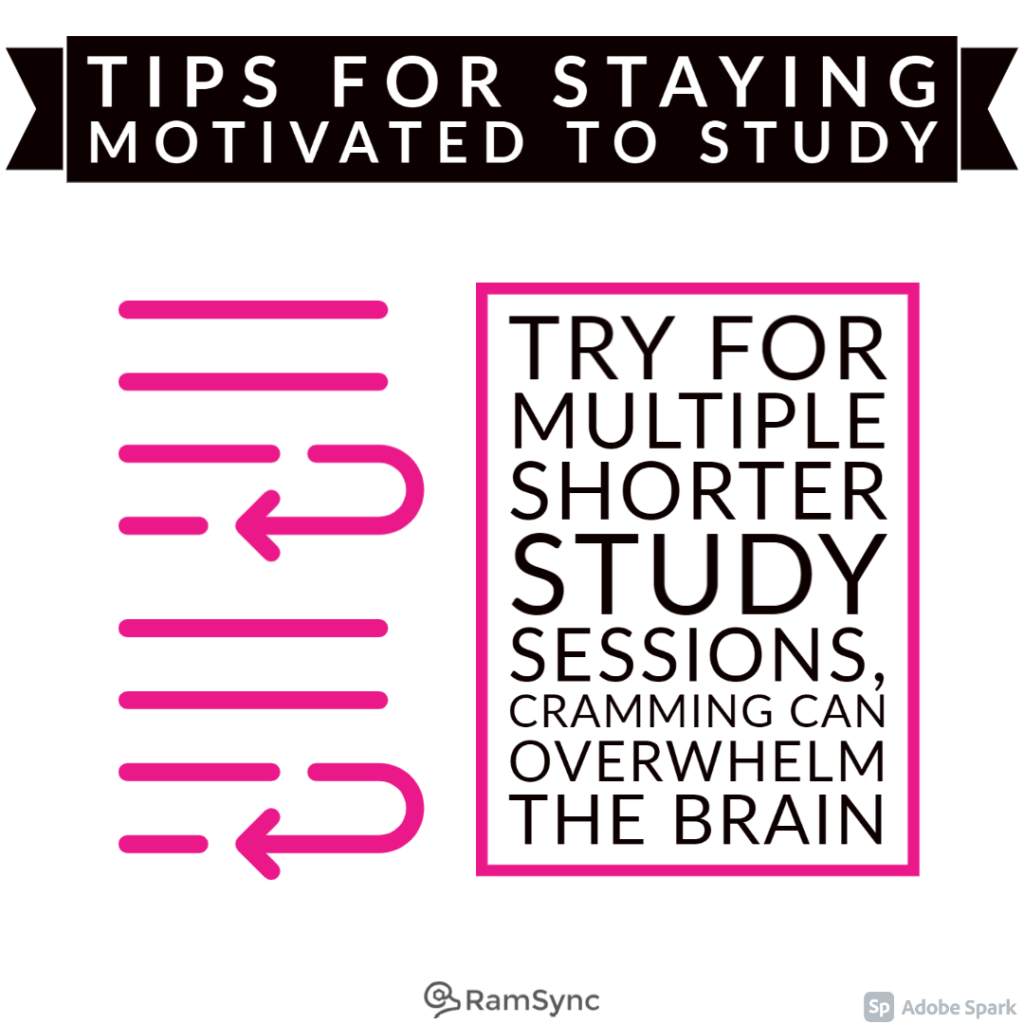

10: Think Like a Teacher
What is the big idea you are supposed to be learning? What are the main methods used to get there? Answering these questions can be a great way to structure your thoughts about a subject.
Overall structures can help guide what you should be studying and which details are the most important to ingest and retain. If you are having trouble determining the overall structure, try looking at the chapter headers in your textbook, your syllabus, online summaries of the course/idea, or even ask your instructor.
When creating your notes, try breaking big ideas down into bite-size questions. Create questions that generally describe ideas as well as specific fill-in-the-blank types.
11: Just Start
Open the page. Read one sentence. Start one note.
Some days, the hurdle is just starting, and that’s okay. Go easy on yourself, and just start simple. Start small, maybe just one sentence. It doesn’t matter where, it doesn’t have to be perfect. Just start.
See what happens after the first few words. Remember, if you could already do it perfectly, you wouldn’t be learning. Now that you have begun, you may as well keep going, at least for a Pomodoro. The key: just start.

You’ve Got This!
All of us at RamSync believe in you and wish you all the success. If you ever have questions, need a quick pep talk, or want some more study tools, ping us on Twitter or drop us a note. We believe in you!

